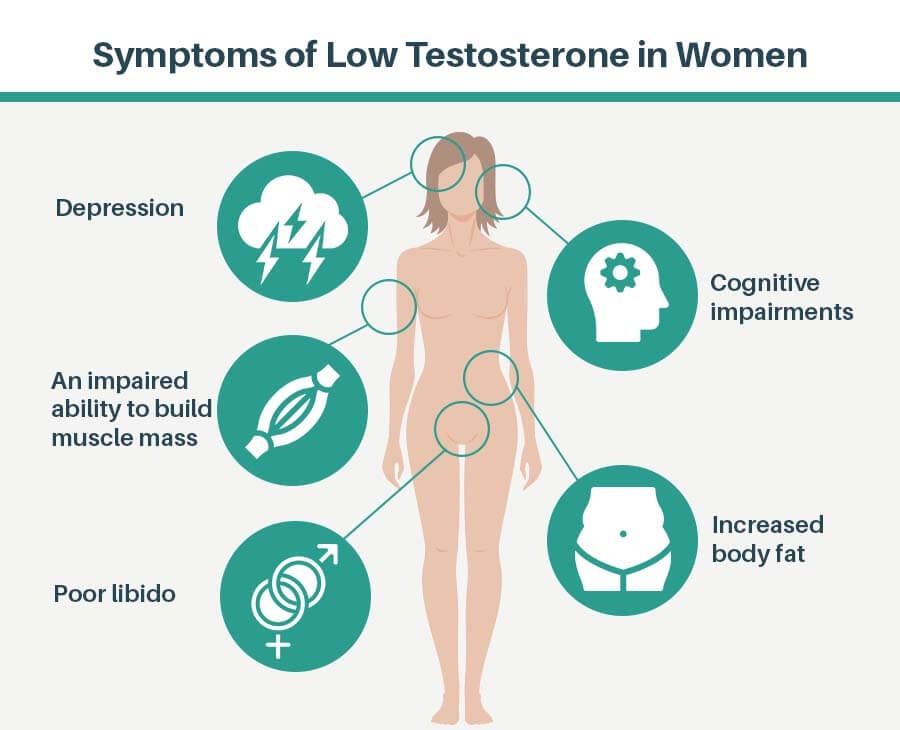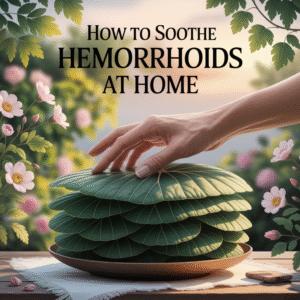Low testosterone levels in women, though less commonly discussed, can have significant effects on their overall health and well-being. Understanding the causes, impact, and potential solutions for low testosterone in women is crucial. In this blog post, we will explore the factors contributing to low testosterone in women, its impact on the body, available solutions, and the importance of addressing this condition.

Causes of Low Testosterone in Women
- Menopause: During menopause, a woman’s hormone levels, including testosterone, naturally decline. This hormonal shift can result in low testosterone levels.
- Polycystic Ovary Syndrome (PCOS): PCOS is a common hormonal disorder that can lead to imbalances in various hormones, including testosterone. Women with PCOS may experience low testosterone levels.
- Premature Ovarian Insufficiency: Premature ovarian insufficiency refers to the loss of normal ovarian function before the age of 40. It can lead to reduced testosterone production.
- Adrenal Gland Disorders: Disorders affecting the adrenal glands, such as congenital adrenal hyperplasia or adrenal insufficiency, can disrupt hormone production, including testosterone.
- Certain Medications: Some medications, such as oral contraceptives and certain antidepressants, may contribute to low testosterone levels in women.
Impact of Low Testosterone in Women
Low testosterone can have various effects on women’s health, including:
- Reduced Libido: Testosterone plays a role in sexual desire in women. Low testosterone levels can lead to a decrease in libido and sexual satisfaction.
- Fatigue and Low Energy: Testosterone contributes to energy levels and vitality. Women with low testosterone may experience persistent fatigue, decreased motivation, and reduced stamina.
- Mood Changes: Testosterone influences mood regulation, and low levels can contribute to mood swings, irritability, and decreased overall well-being.
- Loss of Muscle Mass and Strength: Testosterone helps in building and maintaining muscle mass. Low testosterone can lead to muscle loss, decreased strength, and difficulties in maintaining muscle tone.
- Bone Health: Testosterone plays a role in maintaining bone density. Low testosterone levels in women can contribute to an increased risk of osteoporosis and bone fractures.
Solutions for Low Testosterone in Women
Treatment options for low testosterone in women may include:
- Hormone Replacement Therapy (HRT): Hormone replacement therapy involves the administration of testosterone to increase hormone levels in the body. This treatment approach should be carefully evaluated and monitored by a healthcare professional.
- Lifestyle Modifications: Healthy lifestyle choices, including regular exercise, a balanced diet, stress reduction, and adequate sleep, can support hormone balance and overall well-being.
- Medication Review: If low testosterone is a side effect of certain medications, working with a healthcare provider to explore alternative options or adjust dosages may be beneficial.
The Importance of Addressing Low Testosterone in Women
Low testosterone levels in women can significantly impact overall quality of life, including sexual health, energy levels, mood, muscle strength, and bone health. It is important to address this condition to alleviate symptoms, improve well-being, and reduce the risk of long-term health complications.
Is Low Testosterone Serious for Women?
While low testosterone may not be life-threatening, it can have a substantial impact on a woman’s physical and mental health. Seeking appropriate diagnosis, treatment, and management is crucial for maintaining overall well-being and optimizing quality of life.
Low testosterone levels in women can arise due to various factors, including menopause, hormonal disorders like PCOS, premature ovarian insufficiency, adrenal gland disorders, and certain medications. Low testosterone can affect libido, energy levels, mood, muscle mass, and bone health in women. Addressing low testosterone through hormone replacement therapy, lifestyle modifications, and medication review can help improve symptoms and enhance overall well-being. Consultation with a healthcare professional is essential for proper diagnosis, guidance, and management of low testosterone in women.
As an Amazon Associate we earn from qualifying purchases through some links in our articles.




